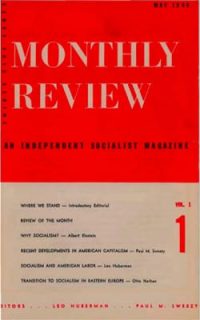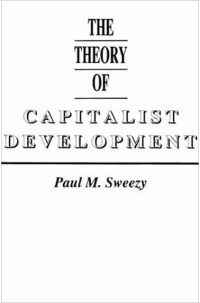Dissenting POWs: From Vietnam’s Hoa Lo Prison to America Today
$13.00 – $89.00
Even if you don’t know much about the war in Vietnam, you’ve probably heard of “The Hanoi Hilton,” or Hoa Lo Prison, where captured U.S. soldiers were held. What they did there and whether they were treated well or badly by the Vietnamese became lasting controversies. As military personnel returned from captivity in 1973, Americans became riveted by POW coming-home stories. What had gone on behind these prison walls? Along with legends of lionized heroes who endured torture rather than reveal sensitive military information, there were news leaks suggesting that others had denounced the war in return for favorable treatment. What wasn’t acknowledged, however, is that U.S. troop opposition to the war was vast and reached well into Hoa Loa Prison. Half a century after the fact, Dissenting POWs emerges to recover this history, and to discover what drove the factionalism in Hoa Lo.
Looking into the underlying factional divide between pro-war “hardliners” and anti-war “dissidents” among the POWs, authors Wilber and Lembcke delve into the postwar American culture that created the myths of the Hero-POW and the dissidents blamed for the loss of the war. What they found was surprising: It wasn’t simply that some POWs were for the war and others against it, nor was it an officers-versus-enlisted-men standoff. Rather, it was the class backgrounds of the captives and their pre-captive experience that drew the lines. After the war, the hardcore hero-holdouts—like John McCain—moved on to careers in politics and business, while the dissidents faded from view as the antiwar movement, that might otherwise have championed them, disbanded. Today, Dissenting POWs is a necessary myth-buster, disabusing us of the revisionism that has replaced actual GI resistance with images of suffering POWs—ennobled victims that serve to suppress the fundamental questions of America’s drift to endless war.
Dissident POWs who opposed the Vietnam war have been all but forgotten. Tom Wilber and Jerry Lembcke’s fine history will restore them to their proper place in the history of anti-war activism.
—Maurice Isserman, coauthor, America Divided: The Civil War of the 1960s
Dissenting POWs is a Peace Bombshell in the continuing, controversial discussion of the US and the Vietnam War.
—Paul Buhle, Retired Senior Lecturer at Brown University; author, A People’s History of American Empire
Drawing on new sources and interviews conducted over the course of over two dozen investigative trips to Hanoi, the two authors focus on a dimension that has been almost entirely ignored by previous scholars: the history of dissent within POW communities. That the military itself became a locus of anti-war dissent during the Vietnam era is well-known, but to date, no one has reconstructed the stories of POWs who opposed the war. Wilber and Lembcke recuperate these stories while arguing that their suppression in public memory contributed to the mythologization of the POW in post-Vietnam political and popular cultures. This is a book that I predict will illuminate how the war has been remembered—and misremembered—in recent US political and popular cultures.
—Natasha Zaretsky, Department of History, University of Alabama at Birmingham; author, Radiation Nation: Three Mile Island and the Political Transformation of the 1970s
Tom Wilber investigates documentation regarding U.S. detainees in the Democratic Republic of Việt Nam from 1964 until 1973. His research is the source for the 2015 Hà Nội National Film Festival award-winning documentary, The Flower Pot Story, produced by Ngọc Dũng. A visiting lecturer at Hà Nội University in 2018, his opinion pieces have been published in Việt Nam News. Wilber represents a U.S.-based nongovernmental organization that works on humanitarian projects with Vietnamese organizations.
Jerry Lembcke grew up in Northwest Iowa. He was drafted in 1968 and served as a Chaplain’s Assistant in Vietnam. He is the author of eight books including The Spitting Image, CNN’s Tailwind Tail, and Hanoi Jane. His opinion pieces have appeared in The New York Times, Boston Globe, and The Chronicle of Higher Education. He is presently Associate Professor of Sociology, Emeritus, at Holy Cross College and Distinguished Lecturer for the Organization of American Historians.
For a discussion of this book, see above or head here.
For excerpts, head here.
Publication Date: April 2021
Number of Pages: 160
Paperback ISBN: 978-1-58367-908-1
Cloth ISBN: 978-1-58367-909-8
eBook ISBN: 978-1-58367-910-4
Related products
-
Monthly Review Volume 2, Number 9 (January 1951) [PDF]
$10.00 Add to cart -
Monthly Review Volume 2, Number 4 (August 1950) [PDF]
$10.00 Add to cart -
Monthly Review Volume 1, Number 12 (April 1950) [PDF]
$10.00 Add to cart -
Monthly Review Volume 1, Number 11 (March 1950) [PDF]
$10.00 Add to cart -
Monthly Review Volume 1, Number 1 (May 1949) [PDF]
$10.00 Add to cart -
The Theory of Capitalist Development: Principles of Marxian Political Economy
$20.00 Select options This product has multiple variants. The options may be chosen on the product page

![Monthly Review Volume 2, Number 9 (January 1951) [PDF]](https://monthlyreview.org/wp-content/uploads/2015/09/Monthly Review Volume 2, Number 9 (January 1951) [PDF].jpg)
![Monthly Review Volume 2, Number 4 (August 1950) [PDF]](https://monthlyreview.org/wp-content/uploads/2015/09/Monthly Review Volume 2, Number 4 (August 1950) [PDF].jpg)
![Monthly Review Volume 1, Number 12 (April 1950) [PDF]](https://monthlyreview.org/wp-content/uploads/2015/09/Monthly Review Volume 1, Number 12 (April 1950) [PDF].jpg)
![Monthly Review Volume 1, Number 11 (March 1950) [PDF]](https://monthlyreview.org/wp-content/uploads/2015/09/Monthly Review Volume 1, Number 11 (March 1950) [PDF].jpg)

